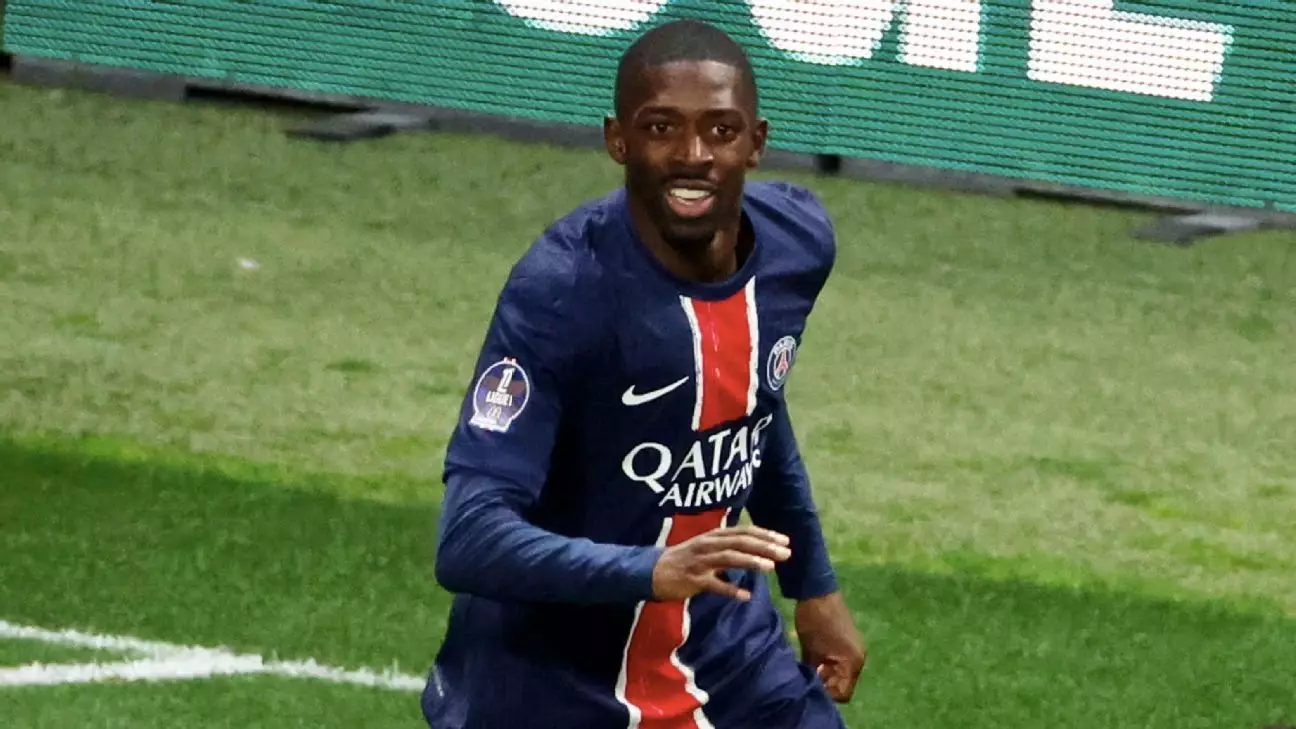In the vibrant world of football, the role of a coach often pivots on balancing individual talent and collective performance. This is particularly true for Paris Saint-Germain (PSG) under the stewardship of Luis Enrique. After witnessing Ousmane Dembélé’s commendable performance that salvaged a draw against Reims with a second-half strike, Enrique remained firm in resisting the urge to label the 27-year-old winger as the team’s next leading goal scorer. By doing so, he acknowledges a critical aspect of football: success is not the responsibility of a single player but rather a product of the collective unit.
Dembélé’s contributions—four goals and two assists to date—highlight his undeniable talent and the potential he brings to the pitch. Yet, as Enrique emphasized, placing the burden of expectation solely on him could inadvertently create issues within the team dynamics. The coach’s philosophy is simple yet profound: “The whole team has to keep improving”. This holistic approach prioritizing teamwork over individual accolades is a testament to Enrique’s managerial acumen.
Adapting Under Adversity
PSG has had a rocky start, suffering from key injuries that have forced the coach to rethink strategies at crucial moments. The absence of Marco Asensio and Gianluigi Donnarumma during the match against Reims underscored the team’s vulnerabilities. Enrique’s acknowledgment of these challenges reflects his realistic understanding of the complexities involved in modern football. He recognized the physical strength and tactical intelligence of Reims, suggesting that any underestimation could lead to disappointment.
Despite these hurdles, Enrique’s belief in his squad’s versatility shines through. His comments regarding tactical flexibility suggest a proactive approach to the squad’s configuration, preparing his players to adapt to varying match conditions. This sort of adaptability will be essential as they face Stade Rennais and later Arsenal in the Champions League—a formidable challenge that tests their mettle and cohesiveness as a unit.
The Road Ahead: Building Towards Success
As PSG gears up for upcoming matches, the need for team synergy becomes more pressing than ever. The coach’s strategy for rotation based on performances not only fosters healthy competition but also mitigates the risks associated with over-reliance on key players. By encouraging a team-first mentality, Enrique is setting the groundwork for a culture that thrives on collective effort and resilience.
Ultimately, the trajectory of PSG in Ligue 1 and European competitions will heavily depend on their ability to embrace this collective ethos. The road ahead offers both challenges and opportunities, and how well the players adapt to Enrique’s vision will likely dictate their success this season. Moving forward, the emphasis must remain not solely on who scores, but rather on how they achieve victory as a cohesive team, delivering performances that resonate with the spirit and ambition of PSG.

Leave a Reply